Full Bloom: Claflins, Beermans endeavor into industrialized hemp industry
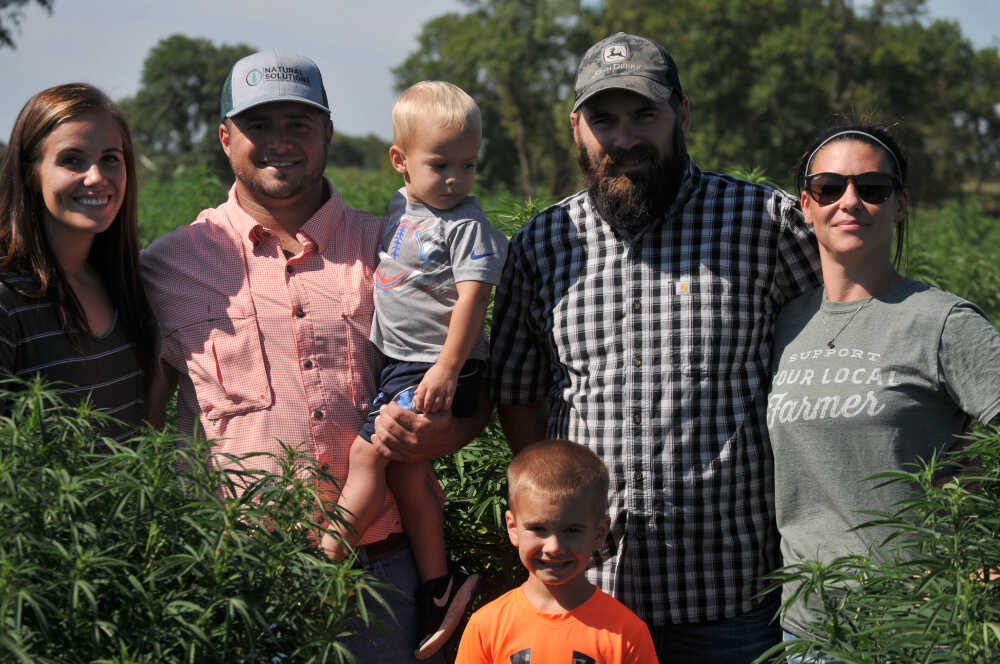
While taking your next drive down I-49, something may catch your eye — rows of hemp plants situated just off the highway, a few miles north of Sheldon. The roughly 11 acres of industrialized hemp crop is the creation of 2007 Sheldon High School alum Cody Claflin and his business partner, Washington, Missouri native Chris Beerman. Also playing an integral role in the business-operation, branded "Farmhouse Extracts," are Claflin and Beerman's wives, Taylor and Stephanie respectively.
The industrialized hemp field is the first of its kind in Vernon County. Just a few short years ago their endeavor wouldn't have even been possible. It wasn't until the 2018 Farm Bill was passed that it became a reality. The bill legalized the growth and manufacturing of industrial hemp, paving the way for hemp-based products, such as CBD oil, to be readily available for consumer use.
"This is the first real commercial year for hemp in Missouri," Claflin told the Daily Mail. "There were a few late crops last year, but mostly for research." Their crop includes three different types of hybrid, meaning a cross between the strains Indica and Sativa. "We wanted to split up the risk, try something different," Claflin noted.
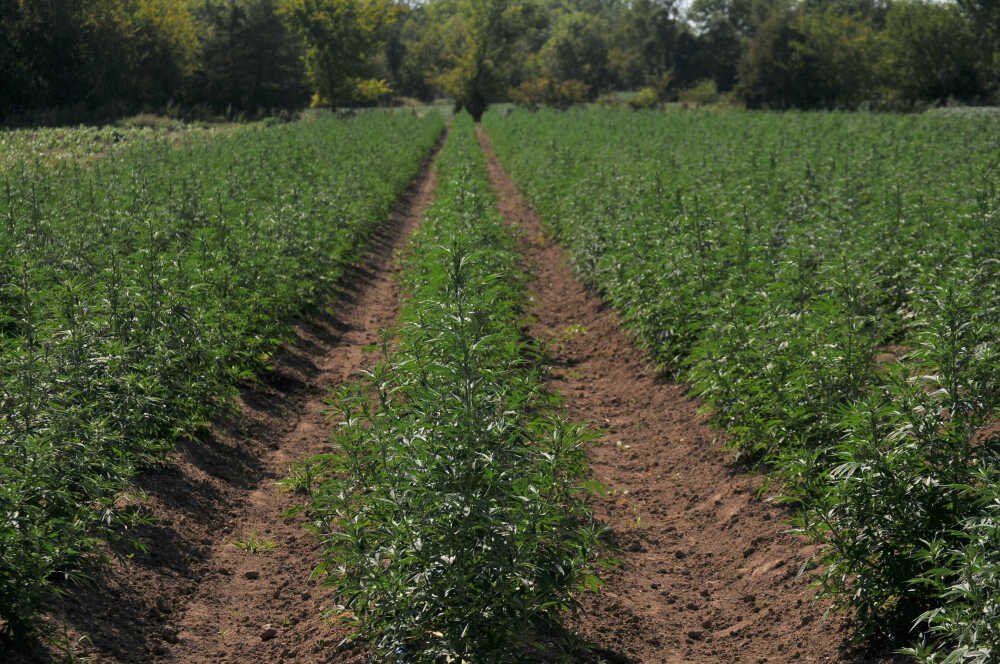
With this being their first harvested crop, their lone current product is CBD tinctures, featuring a natural and sweet orange flavor. Farmhouse Extracts has plans to eventually expand its product-line to include edibles and creams.
There are distinguishable differences between CBD tincture and oil. cbdMD states that "by definition, a tincture is an alcohol-based, or alcohol and water type-solution. The process of creating a tincture involves saturating hemp material into high-proof alcohol, and heating it slowly for some amount of time. This creation allows the CBD molecules to infuse with the alcohol, which then is boiled from the solution, leaving a liquid that can deliver CBD compounds through the body." However, many manufacturers, such as Farmhouse Extracts, "substitute the alcohol with a carrier oil and add other ingredients, including natural flavoring, for better taste. CBD tinctures also use "CBD islolates, extracted from the flower, stalk, and leaves of Cannabis sativa."
According to cbdMD, "CBD, or cannabidiol, is a cannabinoid derived from both marijuana and cannabis, and industrial hemp." As noted by Claflin, federal regulations require that industrial hemp, contain less than 0.3 percent tetrahydrocannabinol (THC). "CBD is categorized as non-psychoactive, and thus, does not induce euphoric effects like marijuana."
Farmhouse Extracts smallest-sized tincture is 500 milligrams, and retails for $50, while a 1,000 milligram is $65. They also have plans to manufacture a 1,500 milligram product, for approximately $80.
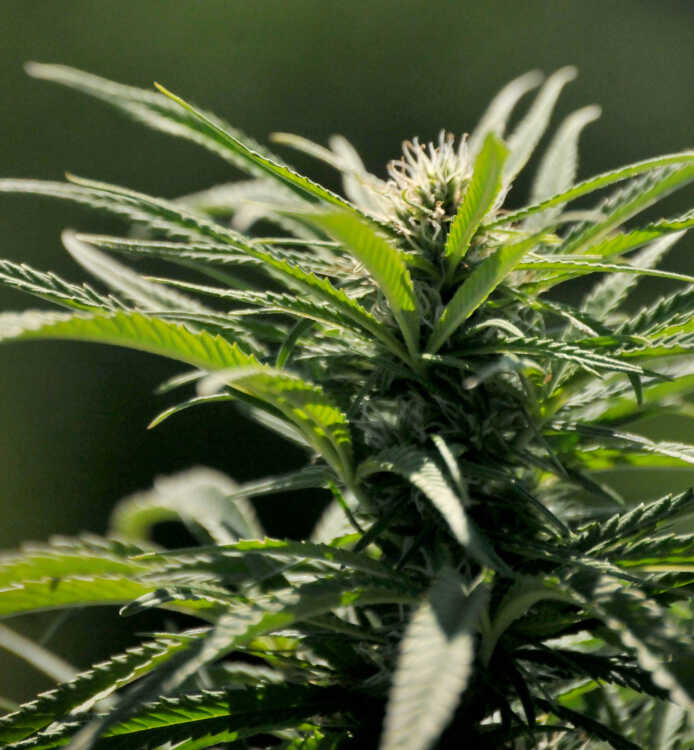
Claflin said that he's been farming since he was a kid, and felt it was the right time to try something different.
"Bring a high-value crop to the area," he said. "It's a unique challenge to grow something different like this. Being able to (manufacture) a locally-grown medicine product like this is pretty cool."
Claflin has been working with Chris Beerman in various capacities over the past five or six years. Beerman said he's always been a big proponent of cannabis in general.
"I wanted to get into the medical side of it when Missouri legalized it," Beerman said. "But the barrier of entry was too high, so I thought hemp would be another route to get our feet into the door on this kind of product."
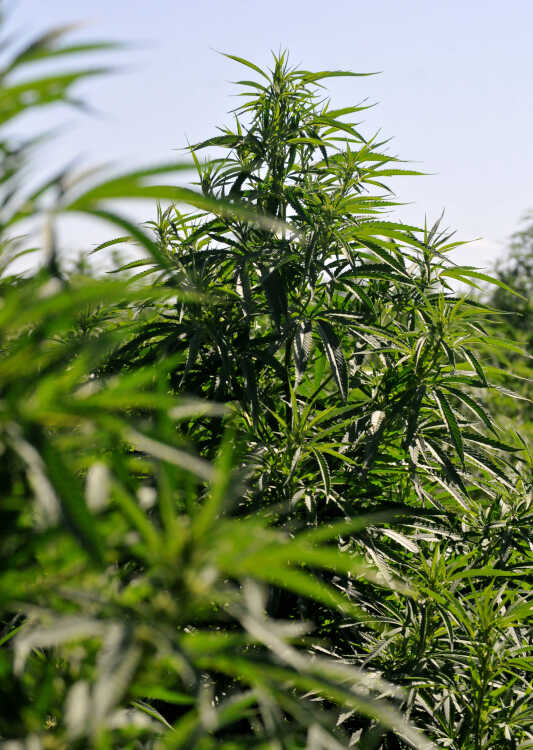
Beerman echoed Claflin's sentiments that it's a high-value crop.
"But it's also a really rewarding product, to be able to grow medicine for people," Beerman said. "And you'd be surprised by how many different people will come (tell us) this product has basically changed their life for the better. It's a fantastic feeling."
Claflin noted he's observed that there's still a stigma attached with marijuana and that some people may be hesitant to try CBD because of the relation between the two. He cited an example of a friend who took the plunge with their product, and that it drastically improved his insomnia. "And he didn't even take as much as I (recommended)," Claflin said. "He said he slept all night, and didn't have the groggy feeling. And that's pretty cool from a stress-relief and pain-management (perspective)."
Claflin touched on the opioid epidemic, drawing a stark contrast between that and CBD products.
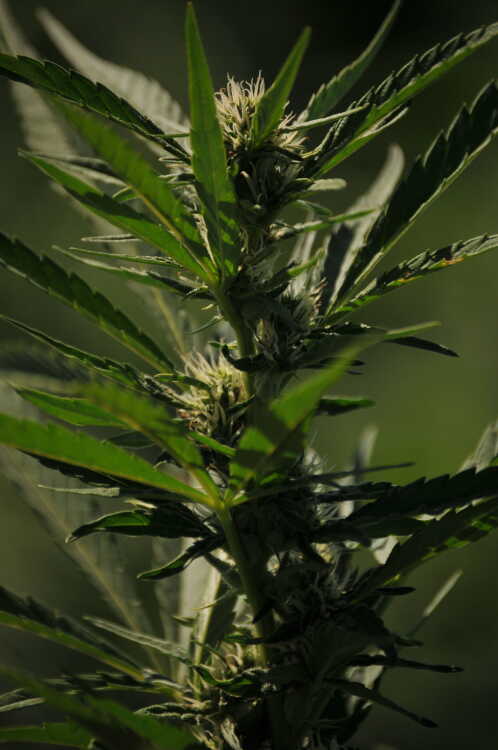
"Opiates are probably one of the biggest problems we have," he said, adding one of their aims is to get people to substitute that with a product that is locally-grown, natural, and non-addictive.
The flower from their crop can also be smoked in order to achieve the CBD, non-psychoactive effect. This is another area Farmhouse Extracts will look to explore down the road.
"We were talking to a business woman down in Mount Vernon, and she said their biggest seller is just the flower," Claflin said. "A lot of people are quitting marijuana and smoking the straight flower, because they don't have the head high, they're not going to flunk a (urine) test. So they have something that they benefit from, and they're not going to test high. And they've just almost quit marijuana. That's pretty eye-opening to me. To pass up on the high, but to actually take the health benefits from it."
Despite Claflin's extensive farming expertise in the areas of corn and bean planting, he said the planting of the nearly dozen acres of industrialized hemp was exceedingly challenging.
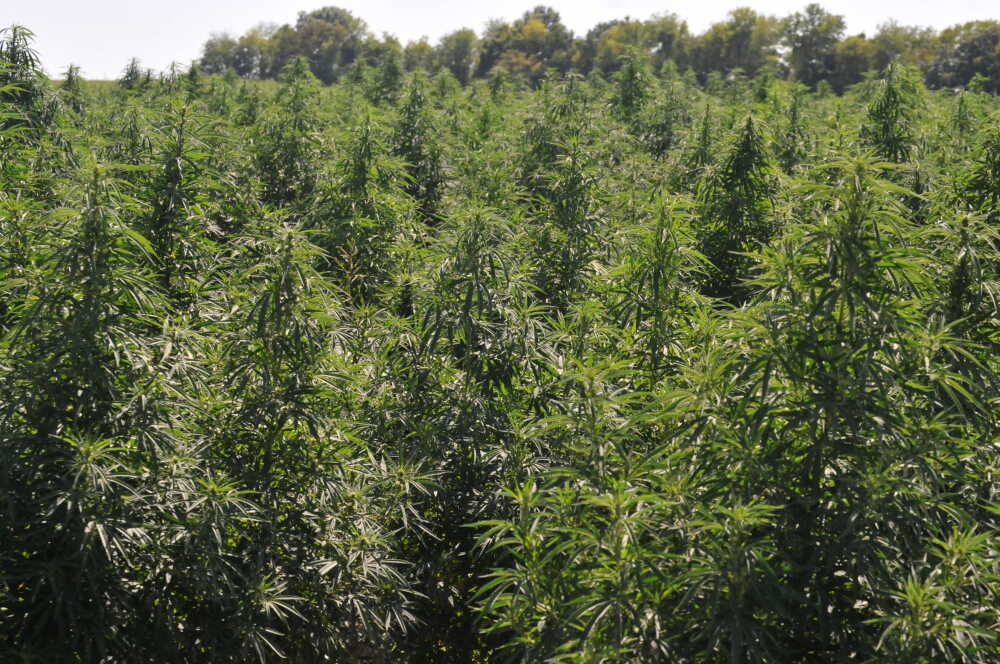
"This is not like corn and bean planting," he said. "There's a lot of people that struggle with corn and beans, and they can't do this. This is the hardest thing I've ever done, and that's saying something."
As part of the planting, plastic went down in various areas along the hemp rows. After the first day of planting last fall, rainfall caused the plastic to be uprooted. Claflin said it required 20 volunteers to get everything re-situated.
"Then, we just went back to work planting," he said, adding that his hemp lots feature 24-hour surveillance. "I think I slept 10 hours that week. It was pretty rough, but we made it through, and are getting down to harvest."
Added Claflin: "We've definitely figured out how to do it better for next year. We have some plans for expansion, and there's a lot of methods out there to automate some of the processes. But doing it by hand, doing it on a small scale, was great — we've learned a lot."
Claflin said another obstacle has been lack of rainfall this summer.
"We've had two inches of rain all summer," he said. "We've been very busy irrigating."
Said Claflin: "Something else we're doing that's new is drip-tape irrigation. A soaker-hose goes under the (hemp) beds. We've been working on keeping water moving to that, trying not to overuse our pond that we have access to. Keeping fertility on-point. Marijuana, hemp, the cannabis plant, will show deficiencies before any other plant. So to grow a high-value plant, you really have to have your game together. As an agronomist that is a really neat part of it."
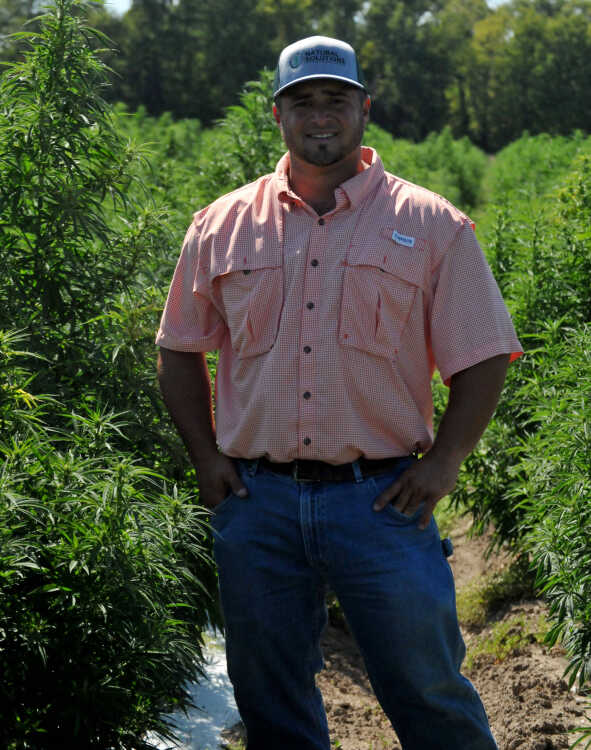
Claflin noted that Beerman has spent much time scouting the fields for male plants, to prevent them from pollinating, as well as for bugs. They typically spend 50-plus hours a week in the field. "I've never done anything this hard in my life, but I've never been so proud of anything either," Beerman said.
'We're really just trying to raise a high-quality crop, and making sure we have our process down," summed up Claflin, who added that Beerman utilizes a drone for some of his scouting. "We're trying to use some of that data to best manage our finishing stages. We're going to harvest (again) in late-Septemeber, early October. So, really trying to use every tool we've got in our toolbox to make sure we're harvesting the best crop possible."
Another challenge posed to the business partners are the aforementioned federal and state regulations pertaining to hemp plants containing less than 0.3 percent THC. For comparison purposes, legalized high-grade recreational marijuana typically ranges between 20 to 30 percent THC content.
Beerman said they're conducting weekly testing, then sending their crop off to labs in order to track the progression of the THC content and CBD levels. Based on the results, they aim to harvest when the CBD level is the highest, but still below that 0.3 cut-off specified in the Farm Bill.
"That's basically the only thing that differentiates marijuana and hemp, is that 0.3 percent, in the eyes of the law," Beerman explained, specifying that there's a certified hemp-sampler program through the Missouri Department of Agriculture. "Our main field here is separated into two five-acre lots. If one of those lots gets tested 'hot' there's no questions asked, we've got to destroy the whole thing."
The duo declined to discuss the current profit margin from their endeavor, or make any predictions on what their potential future line of products could net. Needless to say, they're bullish on their prospects.
Claflin, however, did say that it costs approximately $15,000 an acre to plant. An offshoot of their newly gained expertise is that they will look to offer custom plant-drying and planting services, as well as consultation.
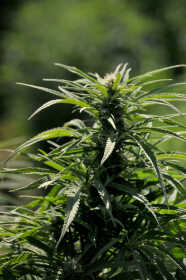
Currently, they don't have a physical retail store open to the public.
For additional information regarding the purchase of their product, check out their Facebook page at www.facebook.com/farmhouseextracts, and official company page — www.farmhouse-extracts.com. They can also be reached by phone at 417-321-0122, as well as by email at www.farmhouseextractsllc@gmail.com.
